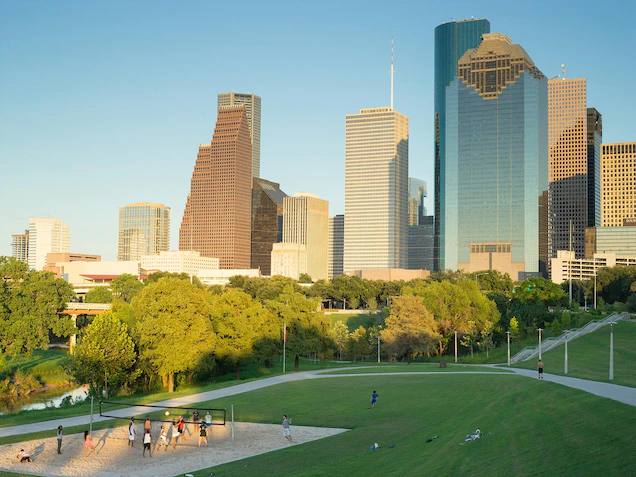A new study has shown that urban greening initiatives such as planting street trees, rainwater gardens and de-paving can help mitigate the impacts of urban heating due to the climate crisis and urban expansion.
The study which was undertaken by scientists at Nanjing and Yale Universities, also found cities have been warming by 0.5C a decade on average. It analysed satellite data from across 2,000 cities and compared surface temperature readings between cities and rural areas from 2002 to 2021.
The study found on average that cities are warming by a rate of 0.56C a decade during the day and 0.43C a decade at night. In comparison, rural areas are warming by 0.4C a decade during the day and 0.37C a decade at night, which means urban areas are on average warming 29% more quickly than rural areas.
Read also: Religious leaders demand fossil fuel non-proliferation treaty
According to the study, there is a link between a city’s size and the rate of urban warming, with megacities warming on average by 0.69C a decade during the day, compared with 0.41C a decade during the day in smaller cities.
“There were also disparities in the rates of urban heating between continents, with cities in Asia – the continent with the most megacities – warming most rapidly during the day and night,” it found. “Cities in Europe were found to be warming the least during the day, while cities in Oceania were warming the least at night”.
The scientists found that climate crisis is the greatest contributor to urban warming, with about 0.3C of heating a decade attributed to human-induced climate change on average In about 90% of the cities surveyed.
However, they noted that urban expansion can also influence urban heating – in parts of China and India, rapid urbanisation is contributing to about 0.23C of urban warming a decade.
The study further found that In Europe for instance, urban greening offsets the rate of urban warming by 0.13C a decade on average. Likewise in Chicago, an urban greening scheme to increase tree coverage after a heatwave in 1995 has helped to decrease the rate of urban warming by about 0.084C a decade.
With the findings, the authors of the study are urging policymakers to consider using urban greening schemes to reduce urban warming, calling it an effective strategy that can reduce the impact of the “urban heat island” phenomenon, hence reducing the risk of exposure to future heatwaves that are much more likely to impact cities.
Story was adapted from the Guardian.
